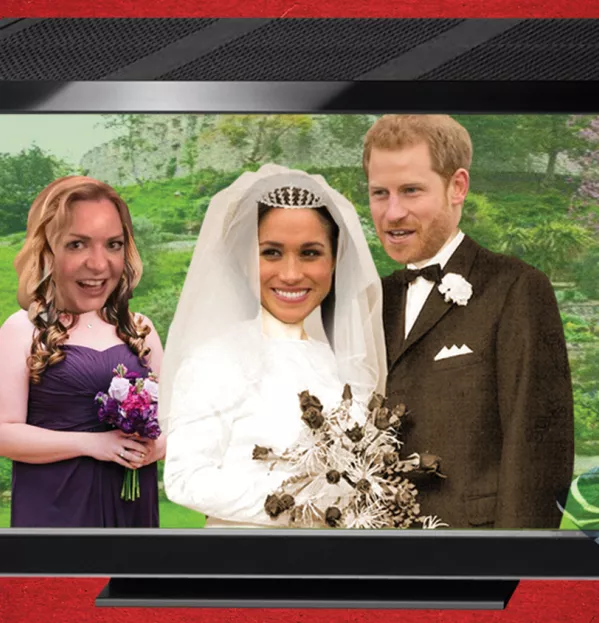It’s almost time to strap on your fascinator, unscrew your Asti Spumante and frantically wag your Union Jack. The royal wedding is just a week away and I, for one, am thoroughly buzzed.
Having learned my lesson when William and Kate tied the knot, this time I plan to banish my husband and son so I can sit in front of the telly in tearful celebration. Last time, they indulged in an only-hilarious-to-them sarcastic commentary. With sound effects. Owing to that disturbance, I lost concentration and didn’t find out that Pippa Middleton even owned a bum until hours after the event. I can’t take that risk again. I just can’t do it.
This royal wedding seems different. I’d like to say it’s a more inclusive one. Meghan’s heritage suggests a wider gene pool than the usual birdbath-sized one from which the royals have historically paired up. Her identity is not defined solely in relation to her husband-to-be, having built a successful career prior to any whiff of a ginger prince. And, at 36, she’s old enough to be the mother of Princess Diana on the latter’s wedding day; looking back, it’s a shocker how young she was.
Meghan is clearly a different kind of royal bride, having had a life before her second wedding and - I’m clutching my pearls here - in America, no less! But let’s be honest, her being allowed to join The Firm doesn’t suddenly signify an all-new “of the people” royal reboot. It presents the monarchy as a teeny weeny bit less like a fully automated museum.
‘What wedding?’
The royal family is the ultimate representation of division between the haves and have nots, the sheer luck (or lack thereof) of where you were born and to whom. I don’t blame them for their privilege; they seem to work hard in their roles, some exceptionally so - William and Harry’s promotion of mental heath issues springs to mind.
But because their circumstances are down to luck rather than graft, their status as figureheads shouldn’t be confused with that of aspirational role models, regardless of how well they carry out their duties. You wouldn’t give that power to a lottery winner and, essentially, that’s what they are: winners of the birthright lottery. Though it’s a prize that I imagine comes with its own set of unique challenges. Honestly, watch The Crown - it’ll have your eyeballs out on stalks.
I grew up in the Diana era, when the royals represented a stoic brand of fairytale glamour. Perhaps it’s because of the royal family’s recently humanised brand that, when I’ve chatted with students, most have seemed only vaguely interested in the subject, despite my desperate sales pitch of conspiracy theories and Jilly Cooper-esque dalliances. And why should they be interested in these state-sponsored mascots, beyond a historical viewpoint?
All that said, I love a wedding, me. And for the difference that she has brought to the family, I love Ms Markle. Not enough to watch Suits, though. Obvs.
Sarah Simons works in colleges and adult community education in the East Midlands, and is the director of UKFEchat. She tweets @MrsSarahSimons
